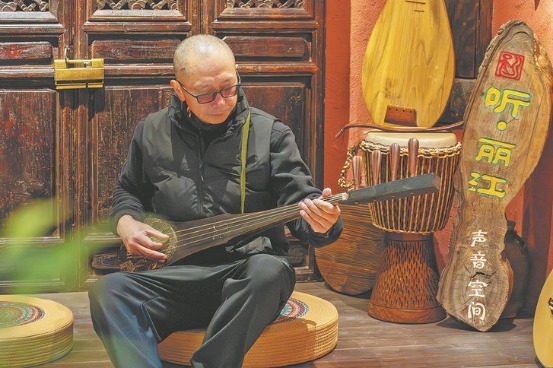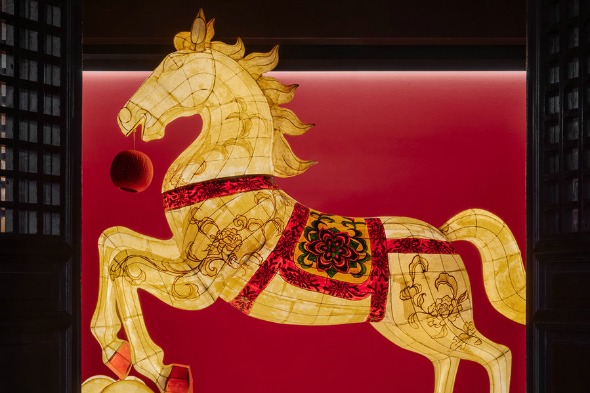On track for success
China's high-speed rail experience helps put Thailand on route to progress as country speeds up its modernization drive, Yang Han reports in Hong Kong.


Since his first visit, Surasit has been to China many times. He says the biggest change he sees in China is the improvement in people's quality of living.
"When I was first in China in the 1990s, the per capita income was about half of that of Thailand," says Surasit. "Now the quality of life and the per capita income are higher than (that of) Thailand."
The adjusted net national per capita income in China was only about $671 in 1997, when the number reached $1,983 in Thailand, according to data from the World Bank. In 2019, the number in China was almost $8,400, while for Thailand, it was $6,069.
Surasit says the CPC leadership has put theories into practice to achieve national development." (The reason) why the political system under the CPC works in China is because the leadership made it step by step to develop socialism with Chinese characteristics," he says.
In The Art of War, dao, tian, di, jiang and fa, which stands for the moral law, heaven, earth, the commander and method and discipline, are described as the five key factors that govern the art of war. As Surasit sees it, these are also very important principles for ruling a country and the political system under the CPC's leadership has demonstrated all the elements required for success.
As the COVID-19 pandemic has created unanticipated and unprecedented challenges to leaderships around the world, Surasit says the CPC's response domestically has demonstrated the Party's decisive and strategic leadership in controlling and preventing the spread of the highly transmissible and life-threatening virus.
This was shown not only by the central government, but also by the local provincial and city governments, he says, noting that coordinated action is essential for rolling out proper anti-pandemic measures, together with the participation of the general public.
At the international level, Surasit says China has provided a lot of humanitarian assistance to other countries, which is helpful to ease the COVID-19 situation globally.
For example, Thailand received the first batch of 200,000 doses of COVID-19 vaccine it ordered from China's Sinovac Biotech on Feb 24.The country started its vaccination roll-out on Feb 28, with the first shot of Sinovac's vaccine going to Deputy Prime Minister and Public Health Minister Anutin Charnvirakul.
The second and third batches were delivered on March 20 and April 10.
On April 24, in a phone conversation with Don Pramudwinai, Thai foreign minister who is also a deputy prime minister, Chinese State Councilor and Foreign Minister Wang Yi said China is ready to strengthen vaccine cooperation with Thailand and help the Southeast Asian country to win the battle against COVID-19.
The CPC's pandemic response even reached other parts of the globe, Surasit notes, describing the effort as a "good contribution to the world".
Surasit says the concept of building a community with a shared future for mankind, which was proposed in 2013 by Xi, also general secretary of the CPC Central Committee, is a big concept. "Because this concept is (about) the struggle between contribution and competition of mankind," he says.
"If you talk about Confucianism, we have to minimize the competition through contribution so that we can (create) many good things for each other," he says.
Expecting China to continue progressing under the CPC's leadership, Surasit says he hopes the cooperation between Thailand and China can reach a new level by focusing more on areas such as education, especially incubating talent for the digital era.
A case in point is that besides the construction of the high-speed rail, China and Thailand also jointly launched vocational training programs and set up institutes to incubate local technicians.
"Many people of the younger generation want to study new technologies such as data science and artificial intelligence. It is very important for the world, and China has proved that it is taking the lead (in technological innovation)," he says.
Surasit says that he also hopes more sister city programs can be formed among a greater number of Thai and Chinese cities, so that people in Thailand can have a wider understanding of the people and culture of different parts of China.
Each year, the NRCT holds a Chinese-Thai Strategic Research Seminar in partnership with Huaqiao University in Quanzhou city, East China's Fujian province. The event will witness its 10th edition this year.
Despite physical barriers created by the pandemic, Surasit says academic exchanges among researchers in Thailand and China have not been suspended, as they continue to communicate online.
Besides Huaqiao University, Surasit says he is preparing to conduct joint research programs with more Chinese institutions this year, such as the University of International Business and Economics and the Chinese Academy of Social Sciences in Beijing.
Contact the writer at kelly@chinadailyapac.com




































